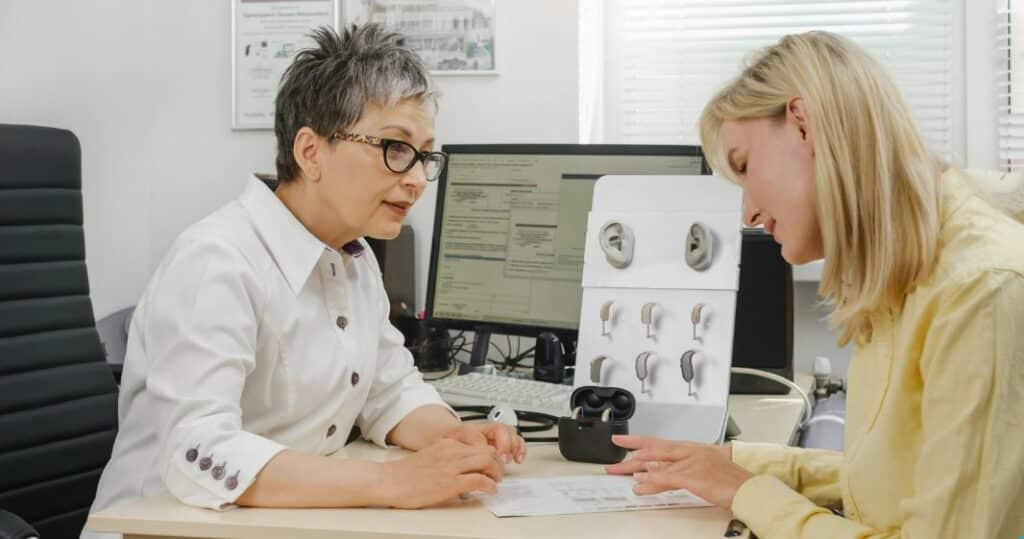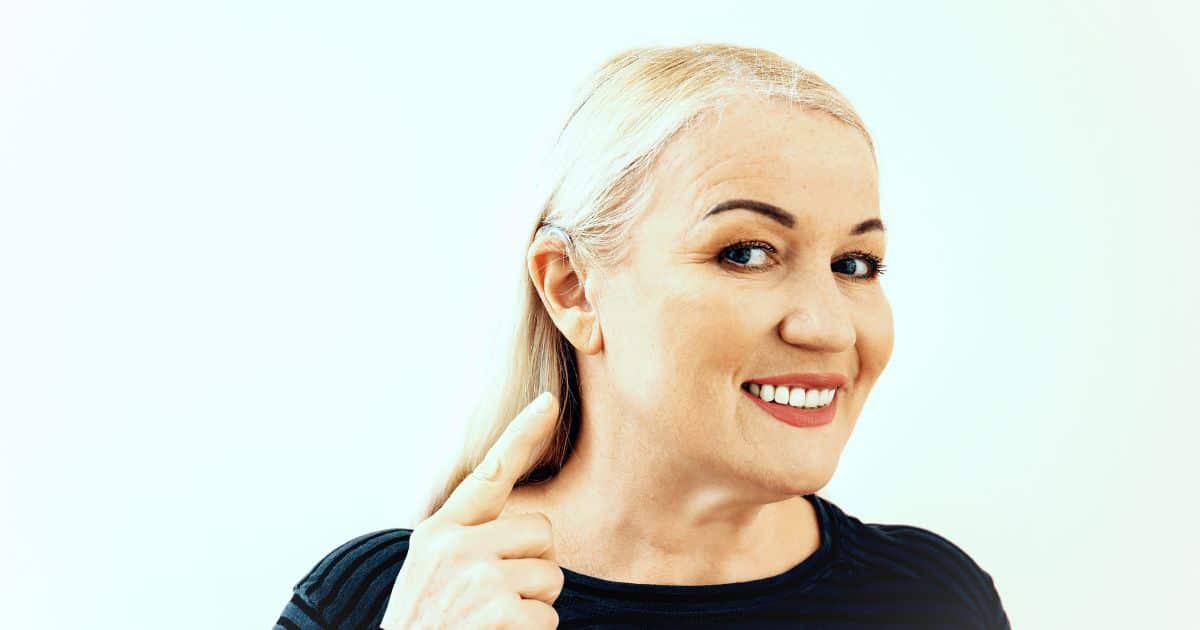by Amy Bishop, Au.D., CCC-A
For numerous individuals, hearing aids continue to be shrouded in mystery. If you haven’t experienced them firsthand or consulted with a hearing expert, assumptions can easily arise. In this overview, we’ll tackle five common myths about hearing aids, offering insights to assist you and your loved ones in making informed decisions.
While it holds true that age-related hearing loss is widespread, auditory challenges can manifest at any age due to factors like exposure to loud noises, genetics or medical conditions. It’s essential to underscore that hearing aids serve as effective tools for individuals confronting hearing difficulties, regardless of their age.
Dispelling the misconception that hearing aids are solely for the elderly is critical if those who need treatment are going to seek it before their hearing loss worsens and possibly even contributes to other conditions like cognitive decline.

Hearing aids do not fully restore hearing to its original state. The objective of a hearing aid is to enhance the overall quality of sound and communication for the wearer. Operating by amplifying sounds to a level audible to the user, hearing aids deliver significant benefits.
However, it’s vital to establish realistic expectations, recognizing that while hearing aids provide substantial advantages, they cannot entirely replicate natural hearing. It’s crucial to acknowledge that, even with advanced hearing aids, sound is still traversing through a compromised ear.
Impact of Hearing Loss
Even a slight hearing loss profoundly impacts our ability to communicate. Our brain must compensate for missing information to comprehend speech, leading to what is termed as listening fatigue. Moreover, mild hearing loss heightens the risk for dementia.
Recent studies indicate that individuals at elevated risk for dementia with hearing loss can reduce the risk by up to 50 percent through the use of hearing aids. This underscores the urgency of addressing even mild hearing loss promptly for overall health.
Contemporary hearing aids are sleek, discreet and comfortable. Available in various designs, form factors and colors, ranging from nearly invisible models to those resembling earbuds, these devices dispel the myth that they are bulky and uncomfortable. I encourage individuals to explore the diverse options available, challenging preconceptions about their appearance and comfort.
While hearing aids entail an investment, it’s crucial to note their benefits often surpass the associated costs. For example, Lucid Hearing provides options at various price points, starting as low as $200 for basic over-the-counter devices designed for mild to moderate hearing loss. Prescription hearing aids are competitively priced and available at over 400 Lucid Hearing centers within Sam’s Clubs. Additionally, FSA and HSA dollars can usually be used to invest in hearing aids.
I stress the significance of thorough research before purchasing, considering factors such as return policies, follow-up care and service to facilitate an informed decision.
Addressing hearing loss is imperative, and I recommend finding a product or provider that instills trust and comfort. By dispelling prevalent myths, my goal is to empower individuals to make informed decisions concerning their hearing health, recognizing the substantial benefits that hearing aids bring to overall well-being.
About the author
Amy Bishop, Au.D., CCC-A, is a distinguished corporate audiologist at Lucid Hearing, a prestigious hearing healthcare company committed to delivering cutting-edge hearing solutions and comprehensive care for individuals with hearing loss. With nearly a decade of experience in the field, Dr. Bishop has made it her mission to help people enhance their hearing abilities and elevate their overall quality of life. Dr. Bishop spent six years as a patient-facing audiologist before joining Lucid Hearing, where she has now been providing clinical and technical support to hearing care professionals and their patients for the past three years. She obtained her Doctor of Audiology from the University of Southern Mississippi and is an active volunteer with the Special Olympics Healthy Athletes program, where she conducts hearing screenings for participating athletes. Her extensive experience and impressive credentials make Dr. Bishop the ideal expert to consult on a wide range of topics in audiology, hearing health, hearing aids and more.







